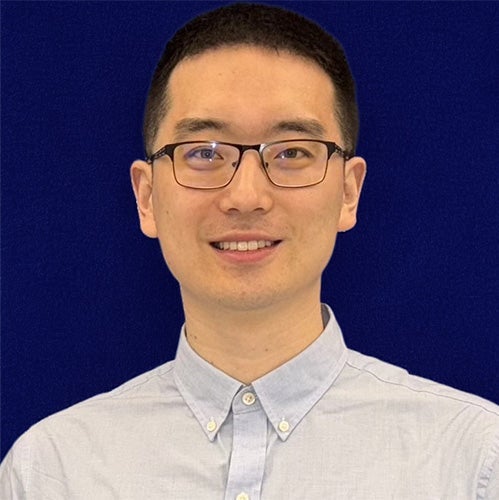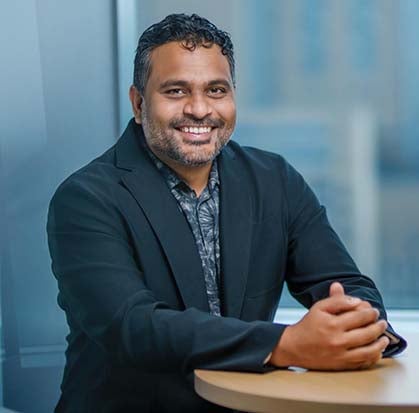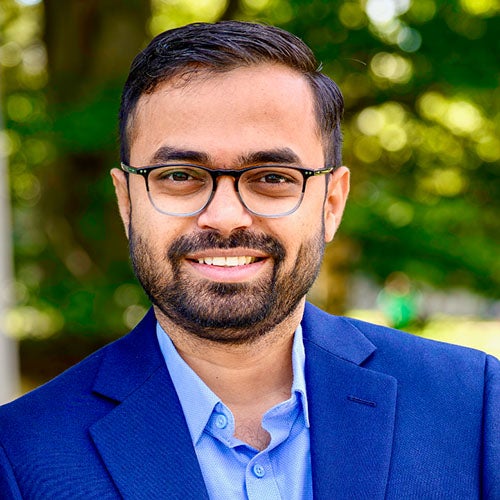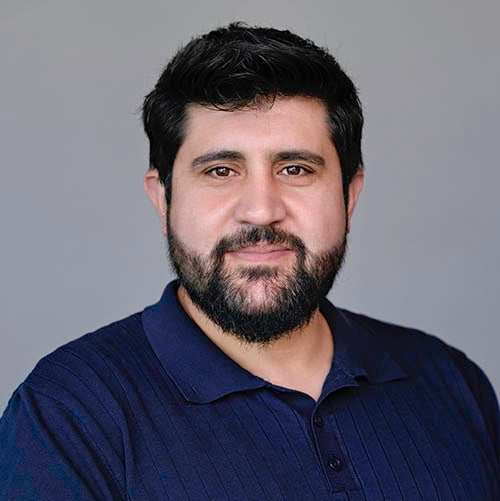The University of Rhode Island College of Engineering is pleased to announce the addition of four new faculty members this semester. Their hiring supports the college’s dedication to research and teaching excellence.
Guoyi Xu joins the college as an assistant professor after recently completing his position as a postdoctoral research scientist at Columbia University. He received his Ph.D. degree in electrical and computer engineering at Cornell University in 2023. His past research stands in the intersection of hardware systems and signal processing. Currently, his research interests include radio frequency and millimeter wave integrated sensing and communication, wireless sensing for the internet of things, smart city, intelligent transportation, biomedical applications, and radio frequency identification systems and applications.

“I combined my passion for physics and engineering and chose to study electrical engineering. My passion for understanding the fundamental principles drove me first into electronic circuits and later to the signal processing field, but as an engineer, I’ve always advocated lab experience in my research, implementing innovative ideas in a real hardware system,” said Xu.
He hopes that students taking his classes recognize the ingenuity involved with engineering. “Creativity is probably one of the most important characteristics of an engineer,” said Xu. “I encourage students to raise more fundamental questions and think beyond the scope of the class and keep this mindset with them when they enter into their careers.”
Xu is always seeking to learn more, in and out of the lab, as he is usually picking up a new sport and is interested in music. He plays the piano and wants to add more instruments to his repertoire.
Rahul Singh joins the biomedical faculty as an assistant professor. Prior to his arrival, he was a postdoctoral associate at Yale University. Singh received his doctorate in machine learning from Georgia Tech in 2023, where he focused on learning for graph-structured data. His research interests are in the areas of machine learning and signal processing methods for biomedical data analysis and human-computer interaction.

“I was inspired by the interdisciplinary nature of biomedical engineering, where I can bridge neuroscience, signal processing, and machine learning,” said Singh. “Exploring how these fields come together in NeuroAI excites me not only for understanding brain function, but also for the potential to create applications like brain–computer interfaces that can truly change lives.”
Beyond technical skills applied in this field, he hopes students cultivate an appreciation for interdisciplinary thinking, the ability to connect ideas across fields, and a broader perspective on research. Singh looks forward to exploring the area and enjoying nature as a hiker and camper, unless, of course, there’s an AC Milan match on.
Dhaval Solanki joins as a tenure-track assistant professor from within the college’s electrical, computer and biomedical department, where he previously held a position as an assistant teaching professor.
From an early age, he was fascinated by circuits. “I was the kid who would take apart electronic toys just to see what was inside. That curiosity grew into a passion during my graduate training in electrical engineering, where I discovered how circuits and systems could be applied to health care, from tracking vital signs to supporting rehabilitation,” said Solanki, who earned his master’s and doctorate degrees in electrical engineering from the Indian Institute of Technology Gandhinagar in India.

His research bridges medical electronics, wearable health technologies, and digital health systems to create accessible, scalable health care solutions. “The intersection of technology and human health continues to inspire me today and drives my research,” said Solanki.
He has always enjoyed sharing those concepts in his classes as well. “Beyond mastering equations, tools, and design principles, I want my students to develop the confidence to solve open-ended problems, think critically, and work collaboratively,” said Solanki. “My hope is that students see engineering not just as a technical discipline, but as a creative and human-centered field where their ideas can make a meaningful difference in society.”
Solanki looks forward to more New England summers at the beach, either taking a walk or flying kites, but as the colder seasons set in, he’s also down for a good game of chess or UNO.
Mehmet Seckin joins the department as an assistant teaching professor. He earned his master’s degree in computer and electrical engineering from the New Jersey Institute of Technology in 2019 and is completing his Ph.D. in electrical engineering at URI. His research centers on embedded systems, wearable digital health technologies, AI-assisted health care applications, and IoT-enabled medical devices.

Growing up on a farm, Seckin developed an early appreciation for practical problem solving. “That environment really shaped the way I think about engineering, finding hands-on, creative ways to solve problems,” he explained.
As he transitions into his teaching role, Seckin hopes to instill values that extend beyond technical expertise. “I want my students to develop patience, knowing that nothing meaningful grows overnight, and to build confidence in their creativity and their ability to teach themselves,” he says. “Most importantly, I hope they carry empathy and kindness into their work, using engineering to improve lives and help others.”
Outside the classroom, Seckin is an avid traveler who enjoys exploring new cultures and meeting people from around the world. He also pursues a range of interests including scuba diving, martial arts, kayaking, stargazing with his telescope, and nature photography.
The College of Engineering looks forward to their innovative research and meaningful classroom contributions, which they have already exuded early on this semester, exemplifying the college’s mission to prepare a skilled workforce, generate new knowledge and serve society.
